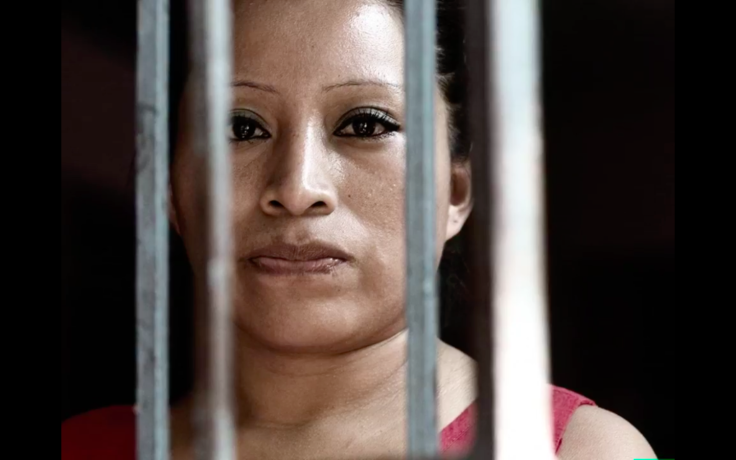
Teodora del Carmen Vásquez was sentenced to 30 years in prison after having a miscarriage in El Salvador - where abortion is a crime under any circumstance. After serving 10 years behind the bars, Vásquez will have a fresh hearing. However, the hearing is with her original sentencing judge.
El Salvador is a country where women have been routinely locked up simply for having complicated pregnancies. That’s because El Salvador still has a total ban on abortion. As a consequence, women who are seeking medical help for pregnancy-related complications can be convicted of breaking the law, and even miscarriages and stillbirths can be treated as crimes.
As presented by The Guardian, Teodora was 24 years old and nine months pregnant when she felt a pain in her abdomen. After calling emergency services, she started bleeding and lost consciousness before help arrived. Vásquez, later found herself surrounded by police officers who accused her of murdering her baby by inducing an abortion. She was handcuffed and detained. Abortion has been banned in all circumstances since 1998 in El Salvaror; it is reported than at least 19 women are serving long prison sentences after suffering obstetric complications during pregnancy.
Amnesty International Norway is bringing attention to her case with an online campaign intended to tell the story of women’s rights in El Salvador through I Am Listening. Teodora’s parents, María Elena and Juan, have not been able to visit their daughter since June 2015 due their economic circumtances, until one day in 2017 they had the chance to visit her.
According to Teodora's mother, she is positive about the future. Amnesty reported that she is healthy and well, and has been taking classes inside the prison. Her dream is to one day go to university and get a job. But her biggest wish for the future is simple: to be reunited with her 12-year-old son and loved ones.
“The total ban of abortion violates the rights of women and girls because it criminalizes them. It is outrageous that the penalty for women suffering pregnancy-related complications may be up to several decades of imprisonment,” said John Peder Egenaes, Secretary General of Amnesty International in Norway. “We demand that Teodora Vasquez and all other women who are imprisoned for pregnancy-related complications are immediately released. We also demand that Salvadoran authorities decriminalize abortion, and ensure access to abortion in cases of rape or incest, where the woman’s health or life is at risk, and in severe cases of fetal impairment," said Egenaes.
A distress signal from El Salvador broadcasted by Amnesty International on the Norwegian FM-band has gone viral after hitting Facebook and Twitter. On December 7, the hijacked signal reached Laprensa Grafica, one of El Salvador's biggest newspapers. The distress signal was broadcasted with a dramatic message.
“On December 8th, Teodora’s case will be reviewed by the same judges who sentenced her ten years ago. Her future will be determined that day, and if people don’t pay attention, she will most likely remain in jail,” said Egenaes. “This is a rescue operation. We only have a few days to show the people and the authorities of El Salvador that the world is listening and cares about what happens on December 8th. This is our chance, and if we succeed, it could not only change Teodora’s future, but also the future of all other women who share her fate, and who have been sentenced to prison for pregnancy-related complications.”
In the aftermath of Norway recently becoming the first country in the world to shut down their FM radio band in favor of digital radio formats, Amnesty International discovered a loophole to broadcast the first distress signal appearing on the Norwegian FM-band since World War II. The distress signal has hit social media with full force, and has currently spread to 92 countries reaching millions of people worldwide.
“We have mobilized our organization globally, and worked together with external allies to support Teodora’s fight for justice. It is wonderful to see the solidarity shown by people from all over the world. Thousands have already shared and many more are pushing to get Teodora free by using the hashtags #iamlistening and #JusticiaparaTeodora,” Egenaes added. “We will use every single share, and every single hashtag, to tell the Salvadoran authorities that the world is aware of Teodora’s case.”
The night of December 7 in Oslo, a group of people took to the streets with their old FM-radios (since the FM signal has been shut down, and Amnesty has hijacked a frequency to continuously broadcast Teodora’s distress signal) as an act of solidarity and amplify the message.
Teodora's veredict is pending.
© 2024 Latin Times. All rights reserved. Do not reproduce without permission.






